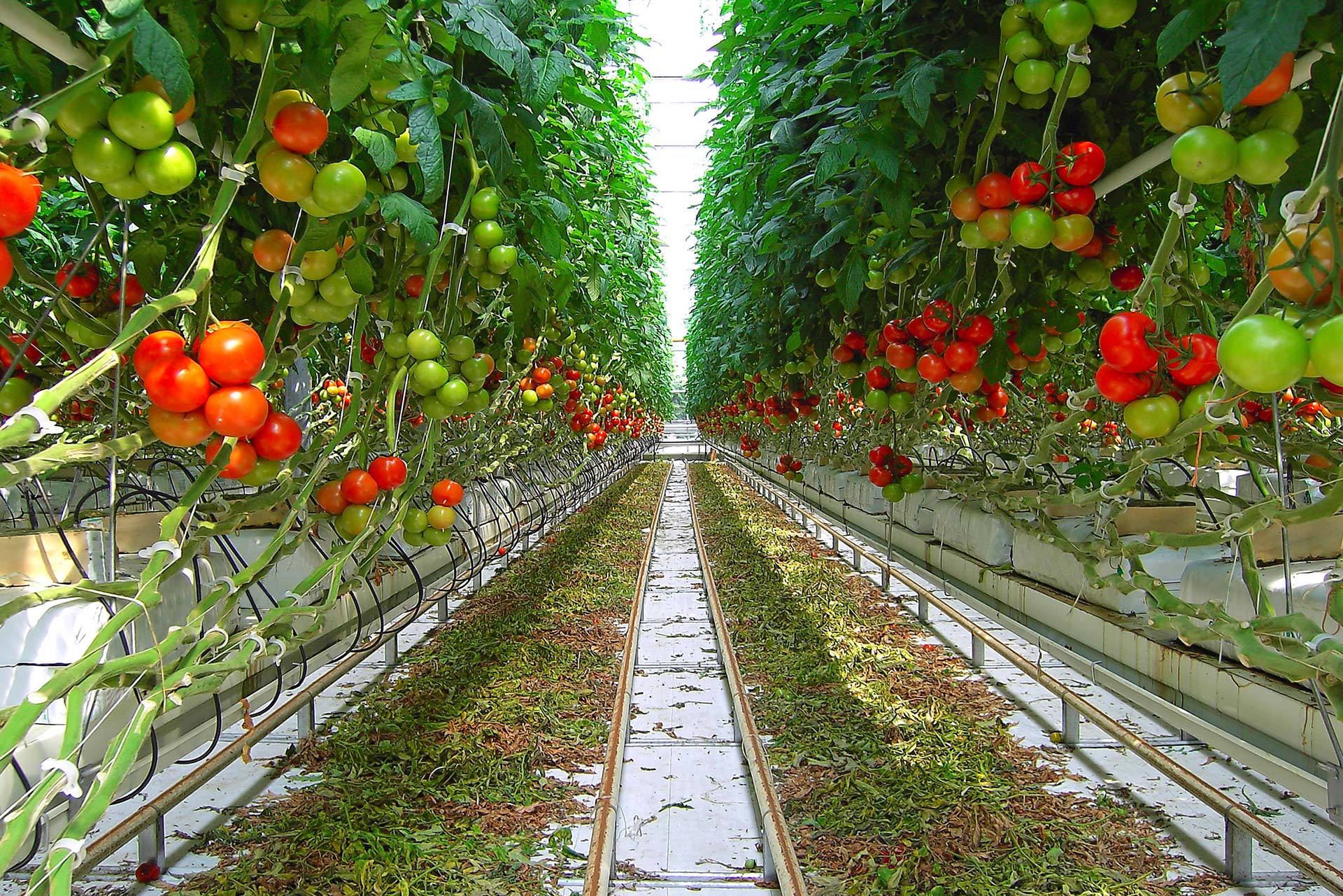If the plant’s leaf color is dark, it indicates ineffective photosynthesis, as it has increased chlorophyll instead of producing glucose. Therefore, extending the photoperiod is recommended, and reducing shading is advised. Adjusting the nutrient elements based on the leaf color and development of the plant is recommended. If the leaf color is light, supplementing with a nitrogen-containing liquid solution is suggested. During germination and seedling stages, the plant requires a higher amount of nitrogen, which is beneficial for leaf and root development. In the flowering stage, phosphorus, potassium, and nitrogen are essential. During the fruit development stage, potassium and calcium are important.
Tomato Seedling Stages

Information that Should be Known in Tomato Seedling Houses
1. Seed to Seedling Stage (Germination Stage):
– Nutrient Elements: Adequate fertilization with a nitrogen-rich fertilizer can be applied for young seedlings. Phosphorus and potassium levels may be kept low.
2. Seedling Period (Leaf Development Stage):
-Climate Control: A warm and sunny environment is ideal for cluster tomato seedlings. Providing protection against cold weather or frost threats is important. -Nutrient Elements: Nitrogen is crucial for plants at this stage, but excessive use should be avoided. Phosphorus and potassium levels can be increased.
3. Flowering Stage:
-Climate Control: A warm and humid environment is necessary for cluster tomato flowers. Nutrient deficiency can have a negative impact on flowering. -Nutrient Elements: During this period, it is important to provide plants with more phosphorus and potassium. Additionally, attention should be paid to micronutrient elements.
4. The Stage of Fruit Formation:
-Climate Control: Again, a warm and humid climate is crucial during this stage. Maintaining the moisture balance is especially important to prevent fruit cracking. -Nutrient Elements: Providing ample potassium to the plants during this stage can enhance fruit ripening and flavor.
5. Fruit Ripening Stage:
6. Harvest Phase:
1. Hot Weather: Cluster tomato plants prefer warm weather conditions. They generally thrive in temperatures between 21-32°C (70-90°F). Growth slows down in lower temperatures, and there may be a risk of frost. Sunlight: Cluster tomato plants are sun-loving. They should receive at least 6-8 hours of sunlight daily. Full sunlight is essential for the healthy growth and fruiting of the plant. Humidity: Cluster tomato plants prefer high humidity environments. Especially during fruit formation, high humidity can enhance plant productivity. Irrigation: Regular and consistent watering is important for cluster tomato plants. In vertical farming, you should not allow the soil to dry out, but also be cautious about preventing waterlogging. Nutrient Requirements: Nitrogen (N): Important for leaf and stem development. Phosphorus (P): Necessary for root development and flowering stage. Potassium (K): Important for fruit ripening and overall plant health. Calcium (Ca): Provides resistance against fruit cracking. Magnesium (Mg): Essential for photosynthesis. Iron (Fe), Manganese (Mn), Zinc (Zn), and Copper (Cu): Important as micronutrients, supporting plant metabolism. Ensuring the proper supply of these elements, either through fertilizers or organic matter, is crucial for the healthy development of cluster tomato plants at every growth stage.
